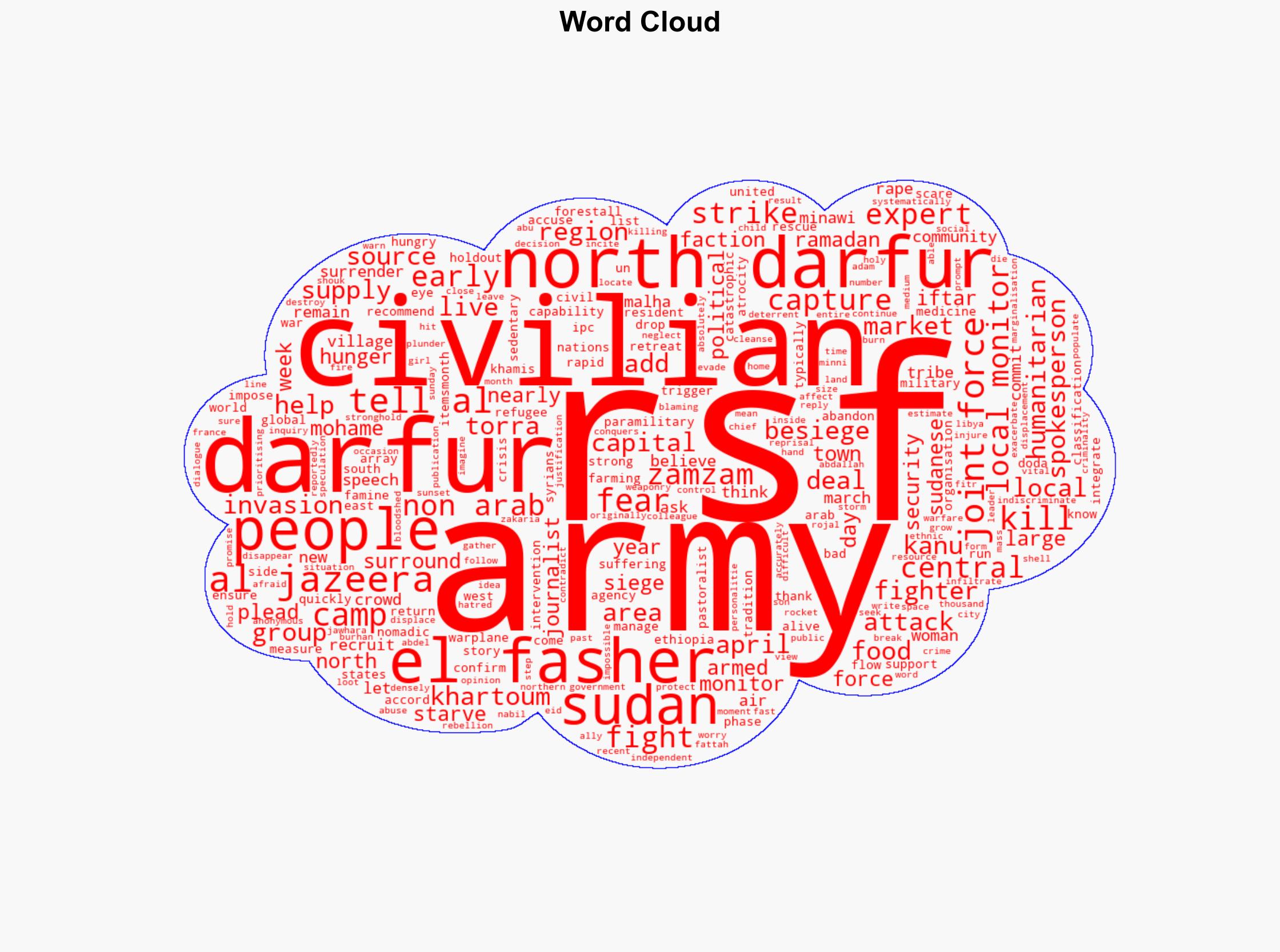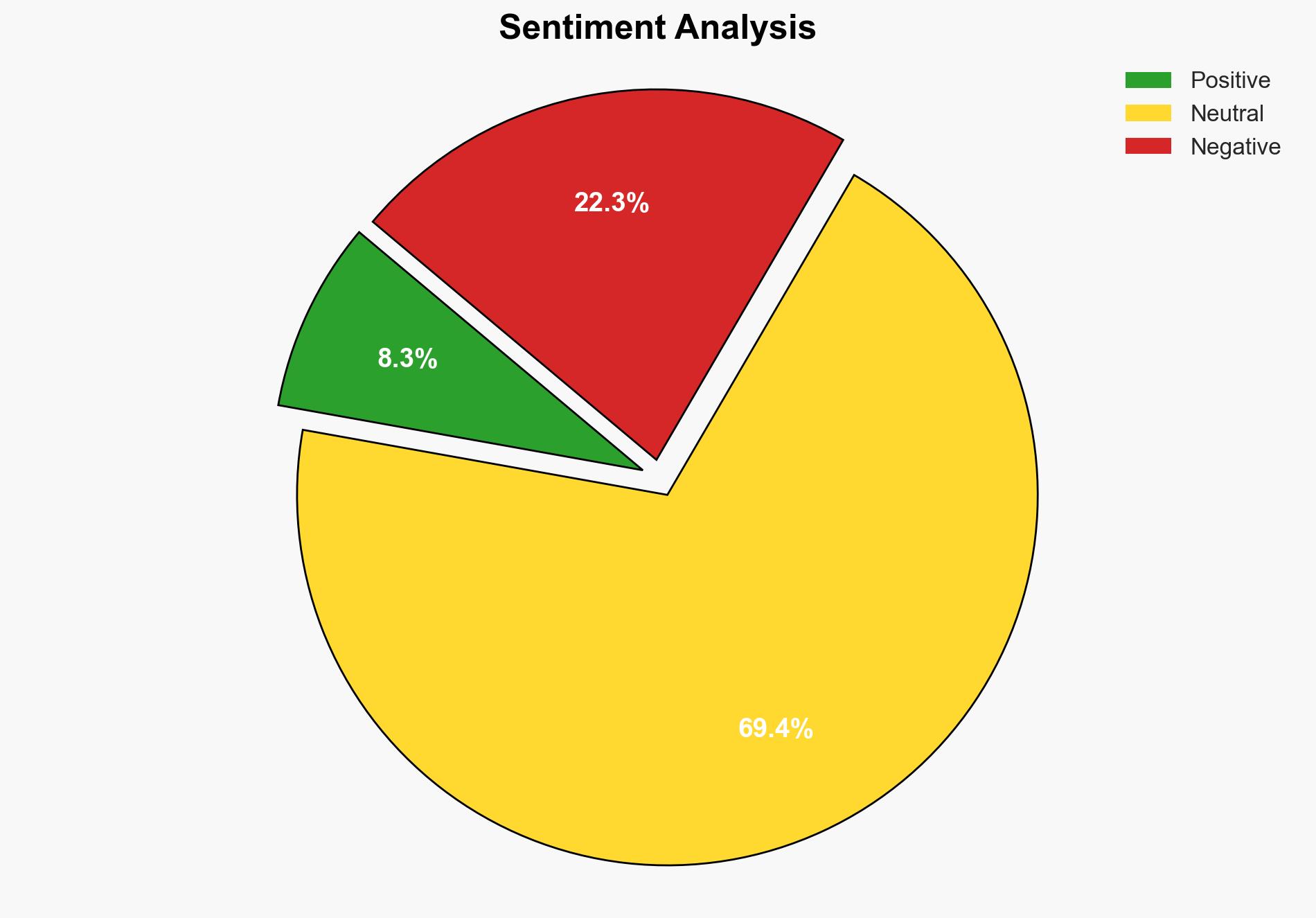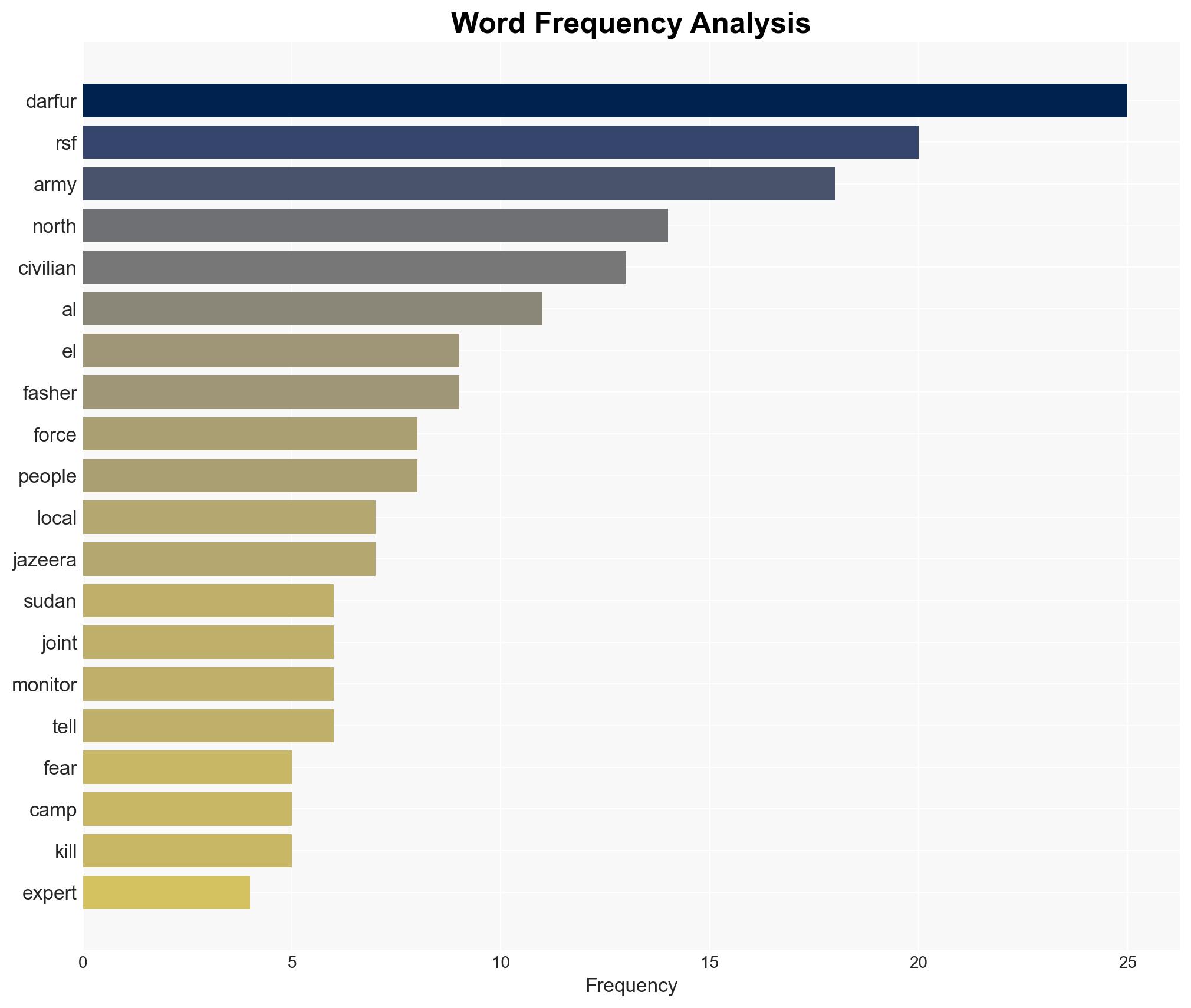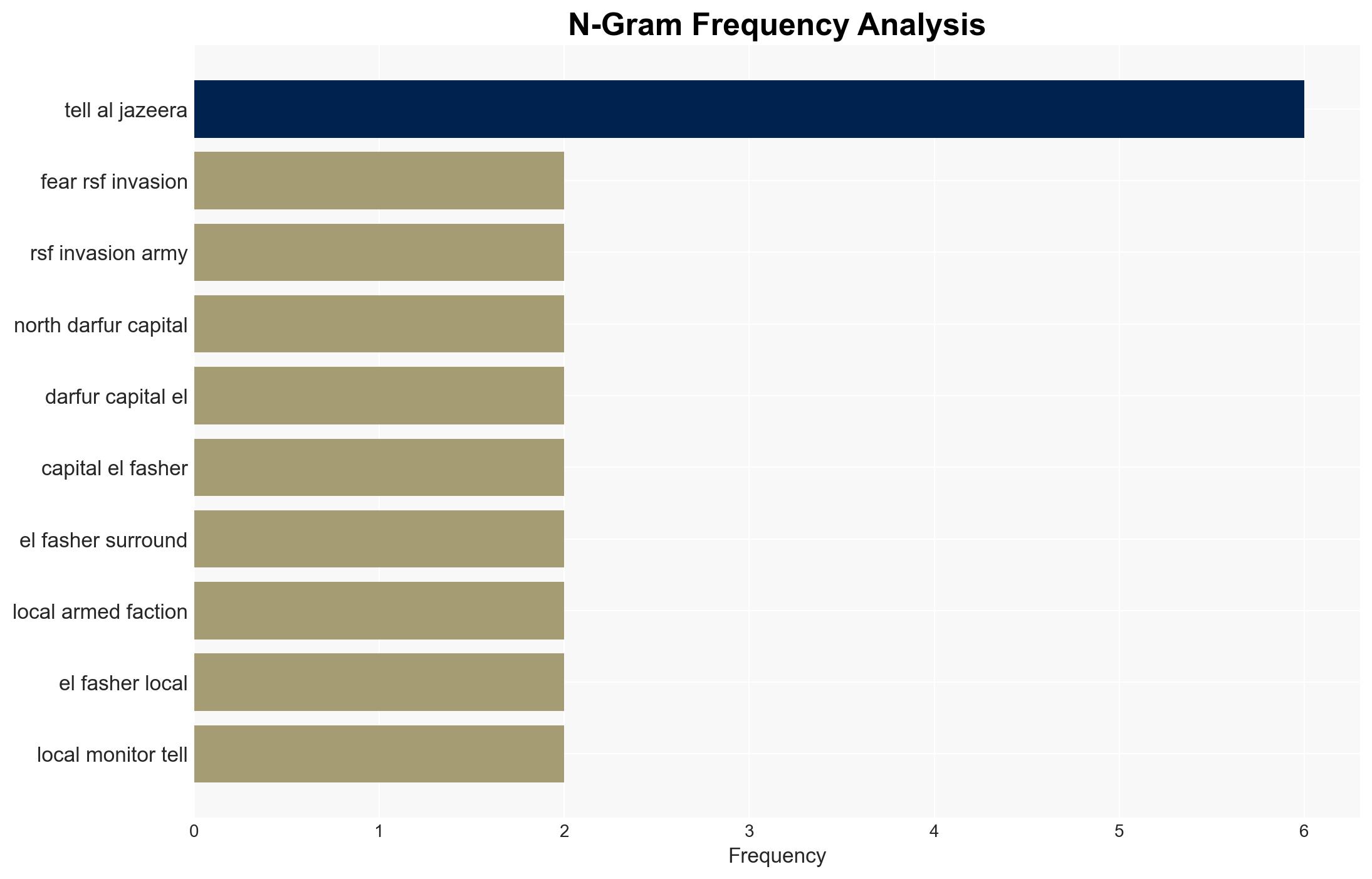Hungry scared Darfur civilians fear RSF attack plead for army help – Al Jazeera English
Published on: 2025-04-03
Intelligence Report: Hungry scared Darfur civilians fear RSF attack plead for army help – Al Jazeera English
1. BLUF (Bottom Line Up Front)
Civilians in North Darfur, particularly in the capital El Fasher and the Zamzam refugee camp, are experiencing severe food shortages and fear an imminent attack by the Rapid Support Forces (RSF). The RSF has imposed a siege, exacerbating the humanitarian crisis. Civilians are pleading for military intervention to prevent further atrocities. The situation demands immediate attention to avert a humanitarian disaster and stabilize the region.
2. Detailed Analysis
The following structured analytic techniques have been applied for this analysis:
General Analysis
The RSF’s siege on North Darfur has led to critical shortages of food and medicine, with the United Nations and other humanitarian organizations highlighting the severe famine conditions. The RSF’s history of systematic violence, including accusations of rape and mass killings, heightens the urgency for intervention. The Sudanese army’s current efforts, including air-dropped supplies, are insufficient to meet the needs of the besieged population. The conflict’s roots in ethnic tensions and historical marginalization of the Darfur region complicate the situation, requiring a nuanced approach to conflict resolution.
3. Implications and Strategic Risks
The ongoing conflict poses significant risks to regional stability and could lead to a broader humanitarian crisis. The potential for increased violence and atrocities by the RSF threatens national security and could destabilize neighboring regions. Economic interests are also at risk, as prolonged conflict may disrupt trade routes and lead to increased refugee flows, straining resources in neighboring countries.
4. Recommendations and Outlook
Recommendations:
- Immediate international diplomatic pressure on the RSF to lift the siege and allow humanitarian aid to reach affected areas.
- Strengthen support for the Sudanese military to protect civilians and restore order in Darfur.
- Encourage dialogue between conflicting parties to address underlying ethnic and political grievances.
Outlook:
In the best-case scenario, international intervention leads to a negotiated ceasefire and the lifting of the siege, allowing humanitarian aid to alleviate the crisis. The worst-case scenario involves escalation of violence, leading to mass casualties and further destabilization of the region. The most likely outcome, without significant intervention, is a protracted conflict with continued humanitarian suffering and regional instability.
5. Key Individuals and Entities
The report mentions significant individuals such as Mohame Khamis Doda, a spokesperson for the Zamzam camp, and Jawhara Kanu, an independent expert originally from North Darfur. Additionally, Adam Rojal, a spokesperson for displaced people in Darfur, and Nabil Abdallah, an army spokesperson, are noted. The entities involved include the RSF, the Sudanese military, and various local armed factions.





